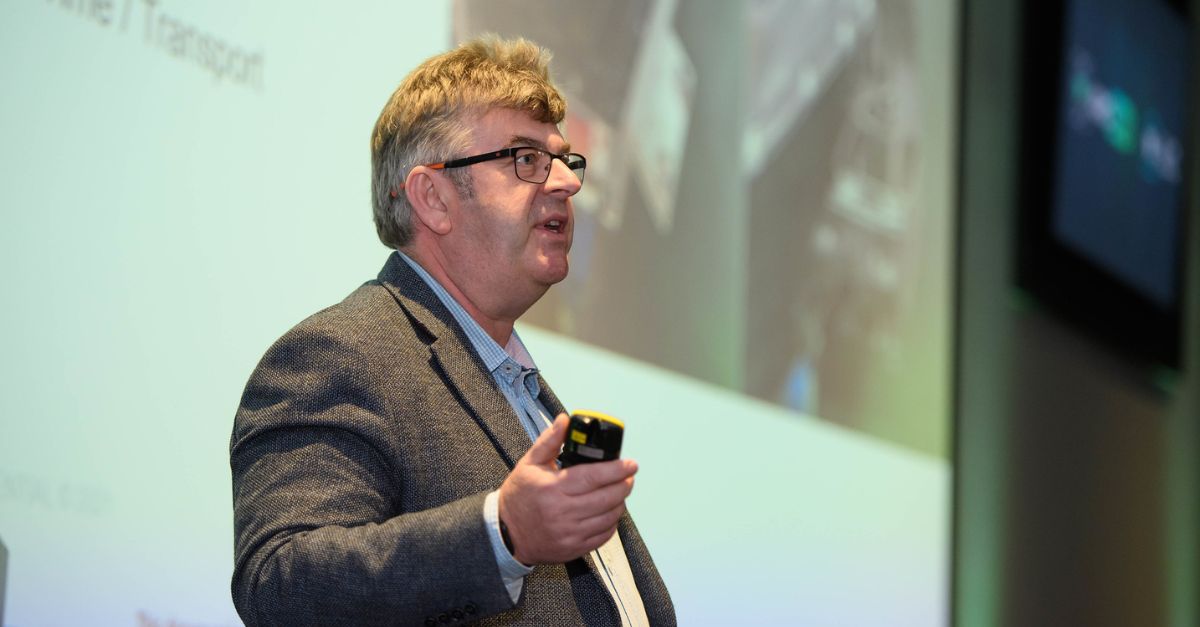The rise and rise of electric vehicles has already brought about a fundamental change to the industry, with repair processes and skills now seemingly in a constant race to catch up.
At ARC360’s specialist EV event, EV-olution, which was held at the Manufacturing Technology Centre, Coventry, sponsors Thatcham Research delivered a compelling session which examined the impact of this new technology on the entire motor claims journey.
Adrian Watson, Head of Engineering, and Dean Lander, Head of Repair Sector Services, considered the issue from both an engineering and skills perspective, emphasising that no part of the claim is untouched when an EV is involved.
Adrian said, “EVs have already had a marked impact on motor claims and repairs, but even greater change is still to come. At Thatcham Research we are trying to understand the flux in the market and how it will impact insurers and the motor claims workflow.”
Knowledge
In the last three years Thatcham Research has focused on the post-accident journey. It has found that opinion is still divided on the impact of EVs, with some people thinking they have minimal impact on the claims journey and others thinking they’re the end of the world.
“The reality is somewhere between the two,” Adrian said, suggesting that those who don’t think they need to change their processes when dealing with an EV do not understand the technology well enough.
“Everything within a claim changes if it’s an EV. No part of the claim is not touched, but I’m not seeing a lot of adjustments or acceptance that that is the case. There is an awful lot of knowledge within the industry, but is that knowledge getting where it needs to be?”
He said that on average EVs add about 25% to the overall cost of the claim. This takes into account a number of factors that are often overlooked, such as the weight of the vehicle and how that changes recovery, managing potential fire risks, the extra space required at a bodyshop and the need sometimes to employ experts to carry out specialist tasks, such as powering down the vehicle.
Adrian said, “We mapped the total claims flow for an ICE vehicle and then then did the same for an EV and have produced a report that compares those two journeys. That report shows that the level of sophistication is significantly more for an EV.”
Batteries
However, far and away the most significant factor of an EV repair is the battery. Batteries are now the most expensive spare part ever seen in the sector, costing up to 105% of the list price of the vehicle, and while nearly half of vehicle manufacturers (43%) have strategies in place for their post-accident repair, the reality is that hardly any of these repairs are taking place.
This, said Adrian, is because the diagnostics doesn’t exist to tell technicians whether the battery is safe and repairable.
“There is a lack of information from the vehicle manufacturers and that lack of knowledge in the aftermarket means than in most cases of battery damage the vehicle is declared a total loss,” Adrian said.
Apart from driving up costs, this is also bad for the environment as there is little or no capacity in the UK for recycling batteries.
Adrian concluded, “There is a lot of work for all of us to do, especially around getting the information that does exist to the people who need it. But there is not a single challenge around EVs that is not solveable.”
Skills
Dean agreed that a lack of knowledge remains the industry’s most urgent concern. The Institute of the Motor Industry has warned of a 160,000 shortfall in qualified technicians by 2030, but Dean believes that number could be even higher if training is not dramatically accelerated.
He said, “Education and training is one of the biggest challenges in the market. We already don’t have enough people to repair the volumes of cars coming through, and we’re struggling to get the knowledge and skills to the people we have got to deal with the technology changes that are coming along.”
Thatcham Research is seeking to address that through its automotive academy and e-learning platform.
Modular and blending both practical and digital learning for greatest effect, the platform delivers the right level of training to the right people at the right time. This includes front-of-house to enable them to make the right decisions at the start of the process, and recovery drivers to ensure they can carry out their jobs safely.
Dean said, “I can see businesses relying on just one person to have all the EV knowledge. I understand that because it’s expensive to send a technician away for four days. That’s why we offer a blended learning solution, because it is critical to ensure that everyone in the business, not just a select few, are EV trained. This knowledge will save you time and cost, because mistakes are very expensive.”
Levels
To help businesses better understand what level of knowledge is required for each colleague, Thatcham Research has broken its training down into four packages.
EV Aware provides a general level of EV understanding and is suitable for everyone in the business.
EV Safe explains how to approach the vehicle and shut it down safely, which is one of the most vital things to understand.
EV Competent is aimed at technicians actually repairing the vehicle, while EV Ready is a business-wide accreditation that ensures everyone on site has the appropriate knowledge and understanding. It comes with certification which is updated annually.
Dean concluded, “If we solve the knowledge challenge we’re half-way there, but the reality is you retain about 25% of classroom-based learning for more than three months unless you practice it in the workplace.
“Everything we do is modular and digital, so it stays with the learner and they can revisit the knowledge whenever they want. But whoever you choose as your training provider, you have to do it with intent because it is essential you’re getting the right knowledge into the business.”
ARC360’s specialist EV-olution event was sponsored by Thatcham Research and ControlExpert, along with ARC360 Corporate Partners: BASF, CAPS, Copart, Entegral, Enterprise, Mirka, Nationwide Vehicle Recovery Assistance, S&G Response, and Solera Audatex, and Partners: Gemini Accident Repair Centres, Repairify, and Prasco UK.
















